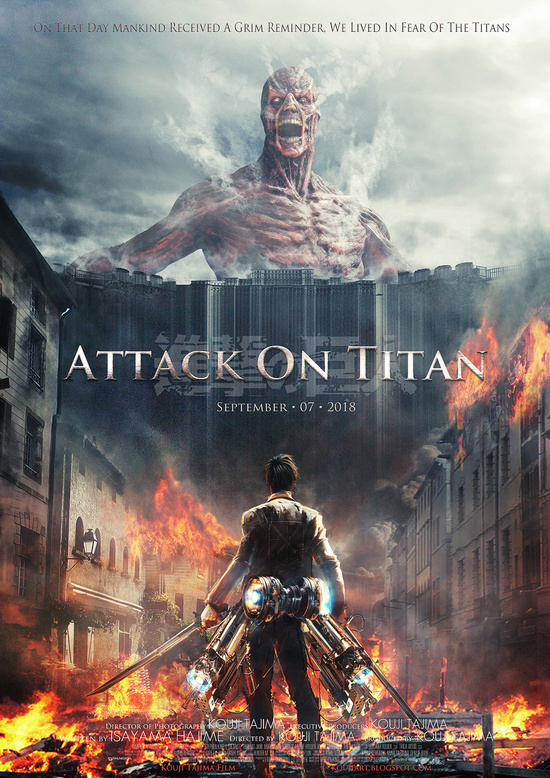
A few weeks ago when I was searching for interesting news article in the internet, I found an news article on SCMP young post about the "Attack on Titan" story. The story "Attack of Titan" has been quite a success in gaining global popularity since it was published in Japan on April 6, 2013. The story is all about a huge amount of mindless giants, which are called titans, has been attacking humans over centuries, and how human beings struggle to live in such a tough situation. This story has been described as a realistic reflection on the global situation nowadays by stating the importance of holding on the uniqueness of every culture and places. In Hong Kong, there is a huge amount of "Attack of Titan" fans that even political parties have to promote their political views using the popularity of this animated series.
But what gets popular with this series is the usage and the change of understanding of the word "Titan". Titan is originally referred to giants or older gods in Greek mythology. It was a Greek word in the very first time, but then it was used as an English word. But after the publication of the animated series of "Attack of Titan", Titan itself has been a negative word to say about others. This phenomenon also happens in our society, when we use the word 巨人(which mean giants/titans) to describe about others, it won't be a good thing. The best example will be local politicians labelled the communist party in China as 巨人, blaming the overpowering cultural and political occupations the communist party has done to our society.

In this case, we can see how the influence of one culture's product to another culture. The bilingual feature is obvious, through having a same interest on certain things, cultures can be exchanged and used in a special way. That's how bilingualism works in nowadays. I am sure that more and more culture will be exchanged in the future, and maybe one day, our kids and the kids overseas will be sharing the same kind of slang and interest. Who knows?




